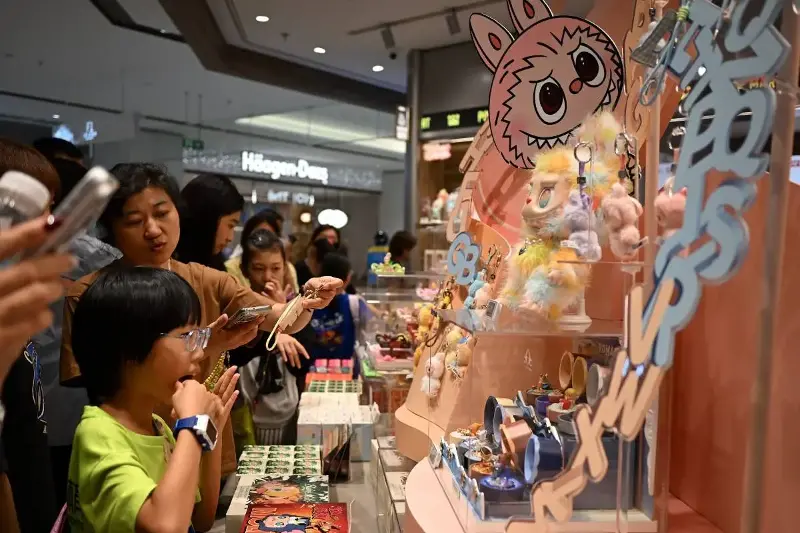
You scroll through TikTok, see someone unboxing a skull-panda, Labubu, or Sonny Angel and suddenly you need one; just one. It is not just toys, it is the chase, the surprise, the hype. Blind boxes have transformed from childhood curiosity into full-blown adult obsession.
Remember ripping open mystery packets as a kid, hoping for the rare trading card? Blind boxes are that feeling upgraded for adults. Brands like Labubu, Sanrio characters, Smiski, Noodoll, Sylvanian Families and many more have turned surprise toys into a serious culture.
At the heart of this trend is POP MART’s Labubu, designed by Hong Kong’s Kasing Lung. Labubu figures are sold in sealed boxes with no way to know which character you will get and that is exactly the point.
The blind box system leans hard into "uncertainty" and a "chase effect," making each purchase feel like a mini lottery.
Why are people hooked? For one, there is instant gratification. You buy, you open, you feel something and whether it is an excitement, disappointment or relief that you did not get the dud one.That brief emotional rush is addictive.
Also, rarity and scarcity equal to desirability. Limited edition figures, secret versions that only a few get, special collabs can all create hype.
Once people realise certain designs are rare, owning or trading them becomes its own badge. Labubus have even been auctioned off, with one human-sized piece selling for over $150,000 which is RM631,500 in Beijing, highlighting the demand.
Then there is the community angle. Watching unboxing videos, trading, posting your collection, customizing your figures like giving your Labubu a crown, a haircut or whatever, you are not just collecting a toy, you are joining a culture.
But it is not all rosy. There is guilt, overspending and sometimes regret. Some fans admit they buy blind boxes just for the thrill, not even because they love all the designs.
It is easy to get caught in the loop of wanting the rare one, chasing what embodies "cool." Celebs have fuelled the fire too.
Seeing influencers, artists or stars with Labubus dangling off their bags makes these toys status symbols.
You want one not just for yourself, but to signal something. Even the corporations behind the craze are playing smart. Frequent collaborations, limited drops, pop-ups, robot stores, online drops are all to maintain excitement and the feeling that you might miss out.
Is the obsession here to stay?
Looks like yes, but with caution. As the craze grows, so do concerns: overconsumption, the financial cost, emotional drain. Some governments or regulators are even worrying about blind boxes being too similar to gambling mechanics.
Also, counterfeits like "Lafufus" and others are messing with trust and when too many people chase rare drops, prices soar. For many, the resale market becomes part of the game, but it can also be its downfall.
Still, for those who collect, blind boxes deliver more than the toy. They deliver memories, surprise, community and a moment of joy.
